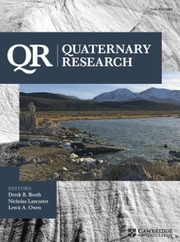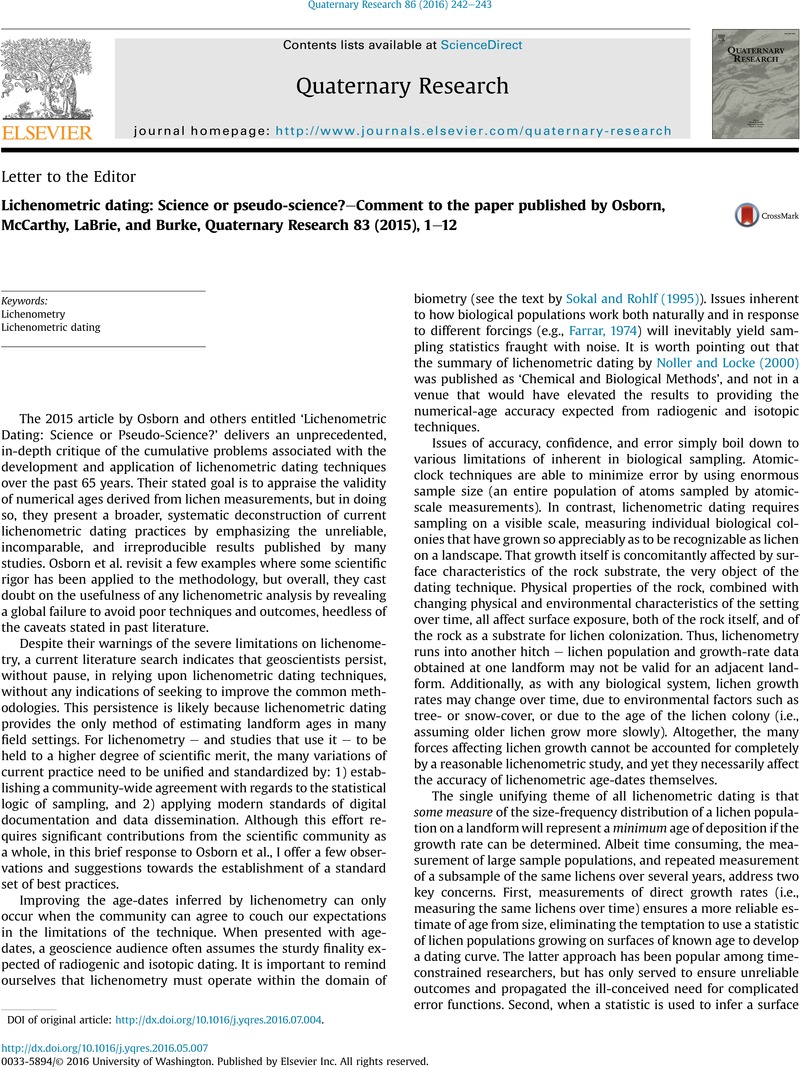Crossref Citations
This article has been cited by the following publications. This list is generated based on data provided by Crossref.
Bull, William B.
2018.
Accurate surface exposure dating with lichens.
Quaternary Research,
Vol. 90,
Issue. 1,
p.
1.
Asih, Findiyani Ernawati
Novita, Dian
and
Ardhana, Ivan Ashif
2022.
Students’ Integrated Science Process Skills and Argumentation in Basic Natural Science Lecture .
Jurnal Pendidikan dan Pengajaran,
Vol. 55,
Issue. 1,
p.
1.


